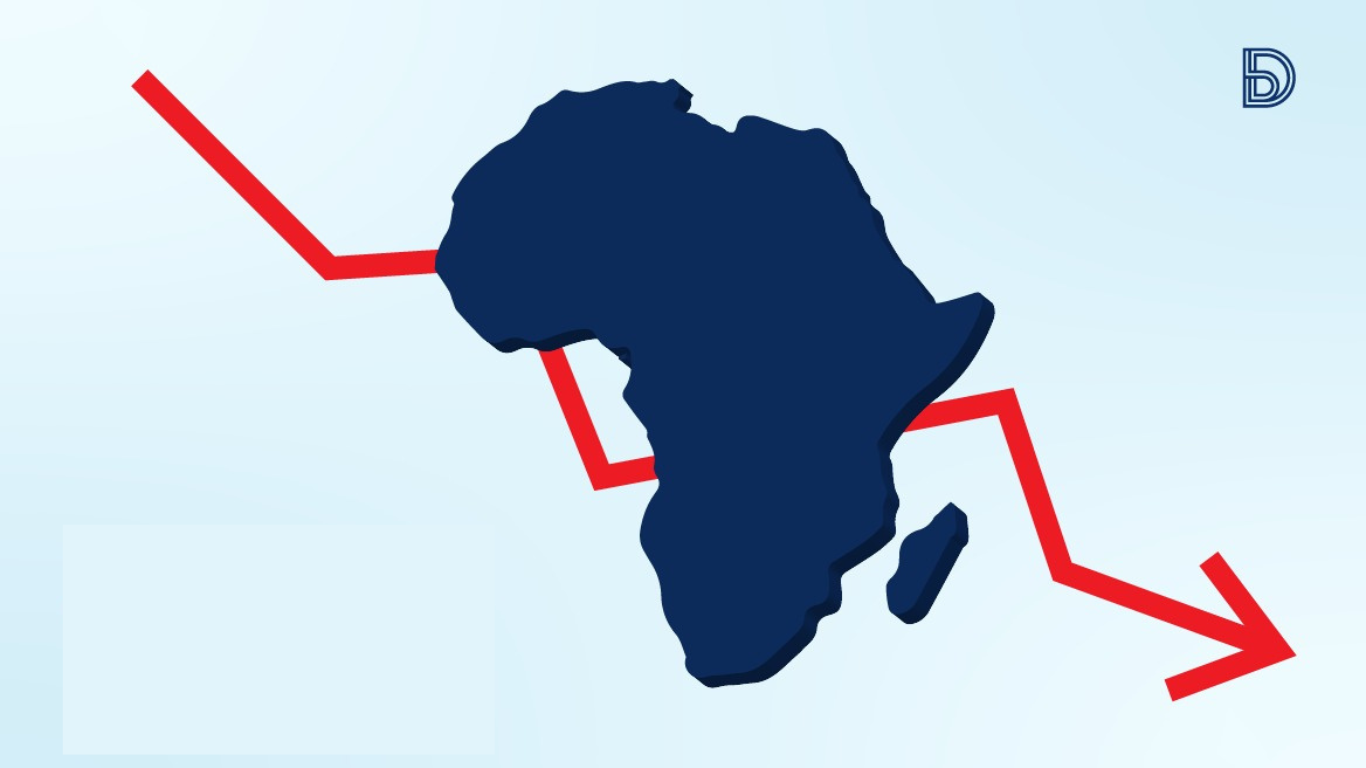African tech VC funding declined 51% YoY in Q1 2024
In Q1 2024, African startups raised at least $369 million across 64 publicly announced deals, a 51.36% plunge from the previous year according to BD Funding Tracker.

The global funding crunch has continued to hit the African tech ecosystem.
In Q1 2024, startups on the continent raised at least $369 million across 64 publicly announced deals, a 51.36% plunge from the previous year according to BD Funding Tracker. Equity funding, traditionally dominant, accounted for 67% of deals, with debt funding inching up to 14.90% and undisclosed mixed deals (combining equity and debt) capturing the remaining 18.43%.
“Funding in Africa is experiencing a milder decline compared to other markets, and there is also an increase in funding when viewed over ten years versus year-over-year,” Marge Ntambi, a venture partner at Benue Capital told Bendada.com.
A surprising turn of events saw the mobility sector become the Q1 2024 funding leader, capturing a dominant 31.17% share with just six deals. This dominance is almost entirely due to Nigerian mobility startup Moove, which raked in $110 million—30% of all Q1 funding for African startups—through two deals (one equity, one debt).
Other top recipient sectors saw more modest shares: cleantech at 13% with eight deals, followed by healthtech (10.89%) with seven deals and fintech (7.78%) with 11 deals. “…the outcomes of the COP28 program held in Dubai have played a pivotal role. The agreements reached during this global environmental conference have acted as catalysts, instigating substantial investment inflows into Africa’s burgeoning innovative ecosystem,” said Michael Osumune, a Nigerian energy financing analyst, regarding the continued influx of funding into cleantech.
Africa's "Big Four" markets – Nigeria, Kenya, South Africa and Egypt – continued their reign, securing 91.22% of the funding pie in Q1 2024, according to BD Funding Tracker.
This dominance stands in stark contrast to other emerging markets like Ghana, Uganda, Senegal, Morocco, Ethiopia, Tunisia, and Côte d'Ivoire, which collectively closed one deal each (except for Tunisia with two), ranging from $314,000 to $5.9 million.
Experts like Peter Oraifo, former principal at Oui Capital, attribute this disparity to investor risk management. By concentrating capital in established markets with larger potential returns, they aim to mitigate the inherent risk of emerging ones.
“The reality is that money flows to where it will get a better return. Now that the interest rates have risen, the guarantee that you will get good returns means that you will not want to gamble. Venture capital is business, not charity,” says Oo Nwoye, executive director of Tech Circle.
Based on the number of deals, early-stage funding dominated Q1 2024, with accelerators, pre-seed, and seed rounds accounting for 27 deals worth a combined $38.5 million. This focus on early-stage ventures contrasts sharply with the later stages – pre-Series A, Series A, and Series B – where just eight rounds secured $144.2 million. A significant portion, $185.8 million, was raised across 36 undisclosed rounds.
“The notable drop in growth-stage funding across the continent is largely due to the dependence on foreign investors for capital infusion,” Ntambi said.
“We are not correlated with the rest of the world when it comes to hype cycles but when funding stops or slows down outside, it hits us harder and it is a good thing. We get back to reality and know our differences. Nobody is building stuff now because their investors want those things. We are now back to what the market wants,” Victor Asemota, a veteran African tech entrepreneur told Bendada.com in an earlier interview.
M&A that took place in Q1 2024
Facing a persistent funding crunch, African startups are increasingly resorting to consolidation, as predicted by industry experts. This trend follows a year with at least 29 mergers and acquisitions (M&A) and continues in Q1 2024 with approximately seven exits. Here's a closer look at some of the notable M&A deals:
- At the beginning of the year, Kuwait-based edtech Baims acquired its Egyptian counterpart Orcas in an undisclosed deal.
- In February, Nigerian fintech startup Carbon acquired Vella Finance and launched an AI-driven business banking platform in a deal whose terms remain undisclosed.
- Global payroll platform Deel also acquired Johannesburg-based HRTech startup PaySpace, expanding its presence in Africa.
- Still in South Africa, nCino, a cloud bank for the global financial services industry, bought DocFox, a leading solution provider automating onboarding experiences for commercial and business banking for $75 million.
Excluding the acquisition of Orcas, an edtech startup, the consolidation wave appears concentrated in the fintech sector. Basil Moftah, general partner at Nclude, sees a silver lining in this trend, particularly within fintech. He believes it has the potential to eliminate redundant ideas and pave the way for greater scalability for the remaining players.
African startups that shut down in Q1 2024
While others are consolidating, some startups have had to close down operations. Just a few days ago, Thepeer, a startup facilitating inter-wallet operability in Africa announced that it is shutting down due to compliance issues and the slow adoption of wallets as a payment method.
“We could not align our product with the market's needs at our current size and scale,” the company’s founders—Kosisochukwu Chike Ononye and Michael ‘Trojan’ Okoh admitted. “Faced with these challenges, we needed to make a key decision either to do a hard pivot, an M&A or return capital to investors. After carefully weighing our options, we decided that returning the remaining capital to investors was the best decision.”
Similarly, Cova, a wealthtech startup shuttered operations earlier this year.
Zoom out
Despite the YoY decline last quarter, there's still a chance to hit or even surpass the $3.2 billion raised last year. This optimism stems from the fact that funding in the first quarter of 2023 was minimal, representing only 0.237% of the total capital raised by year-end.







Comments ()